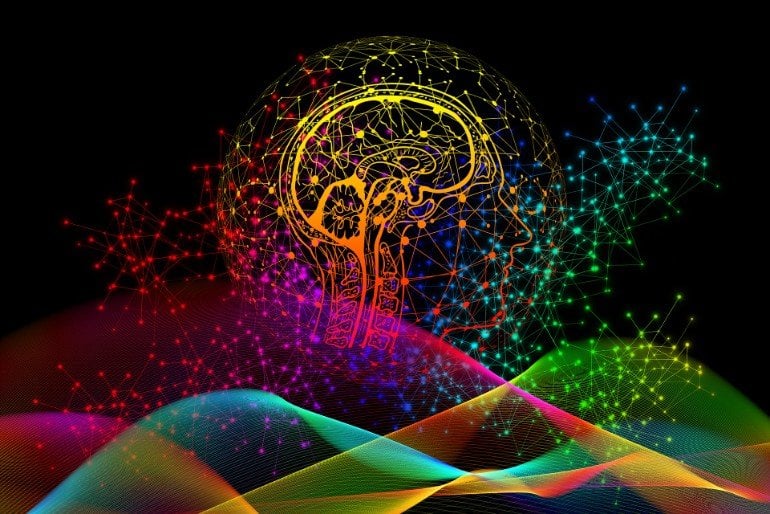Summary: GABA accelerates the breakdown of endocannabinoids in the brain. Endocannabinoids are critical for emotional processing. The findings could lead to the development of new treatments for emotional behavioral disorders.
Source: LSU
Research led by Si-Qiong June Liu, MD, PhD, Professor of Cell Biology and Anatomy at LSU Health New Orleans School of Medicine, discovered a surprising reciprocal interaction between chemicals in the brain resulting in accelerated loss of molecules that regulate brain cell communication.
The research team’s findings are published online in Nature Communications.
Working in a rodent model, the researchers showed that the release of Gamma-Aminobutyric acid (GABA), an amino acid that acts as a neurotransmitter, hastens the breakdown of endocannabinoids in the brain. Endocannabinoids are naturally produced molecules that regulate how brain cells communicate, and their dysfunction can lead to neurological disorders. Endocannabinoids are produced “on-demand” and are removed when they are no longer needed.
The researchers found that GABA upsets this delicate balance. Endocannabinoids are critically involved in several aspects of emotional memory processing, and the researchers found that memory formation through fear conditioning selectively speeds up their decline in the cerebellum. The findings reveal a potential therapeutic target to regulate the rate of degradation of endocannabinoids and provide an effective way to alter behavior.
“Endocannabinoids control emotional behavior,” notes Dr. Liu. “Learning increased the release of the inhibitory neurotransmitter, GABA, and this was responsible for driving the change in endocannabinoid degradation. This form of plasticity is responsible for the formation of fear memory. Our findings suggest a novel mechanism for the physiological regulation of endocannabinoid signaling and for modulating emotional behavior.”

Other members of the LSU Health New Orleans research team included Dr. Christophe J. Dubois, graduate student Jessica Fawcett-Patel and undergraduate student Paul A. Katzman.
Funding: This work was supported by National Science Foundation Grant IBN-0344559, Veterans Administration Grant BX003893 and National Institutes of Health Grants NS58867, R01NS106915, and MH095948, as well as an NIH COBRE grant, P30 GM106392.
About this neuroscience research news
Source: LSU
Contact: Leslie Capo – LSU
Image: The image is in the public domain
Original Research: Open access.
“Inhibitory neurotransmission drives endocannabinoid degradation to promote memory consolidation” by Christophe J. Dubois, Jessica Fawcett-Patel, Paul A. Katzman & Siqiong June Liu. Nature Communications
Abstract
Inhibitory neurotransmission drives endocannabinoid degradation to promote memory consolidation
Endocannabinoids retrogradely regulate synaptic transmission and their abundance is controlled by the fine balance between endocannabinoid synthesis and degradation. While the common assumption is that “on-demand” release determines endocannabinoid signaling, their rapid degradation is expected to control the temporal profile of endocannabinoid action and may impact neuronal signaling. Here we show that memory formation through fear conditioning selectively accelerates the degradation of endocannabinoids in the cerebellum. Learning induced a lasting increase in GABA release and this was responsible for driving the change in endocannabinoid degradation. Conversely, Gq-DREADD activation of cerebellar Purkinje cells enhanced endocannabinoid signaling and impaired memory consolidation. Our findings identify a previously unappreciated reciprocal interaction between GABA and the endocannabinoid system in which GABA signaling accelerates endocannabinoid degradation, and triggers a form of learning-induced metaplasticity.







